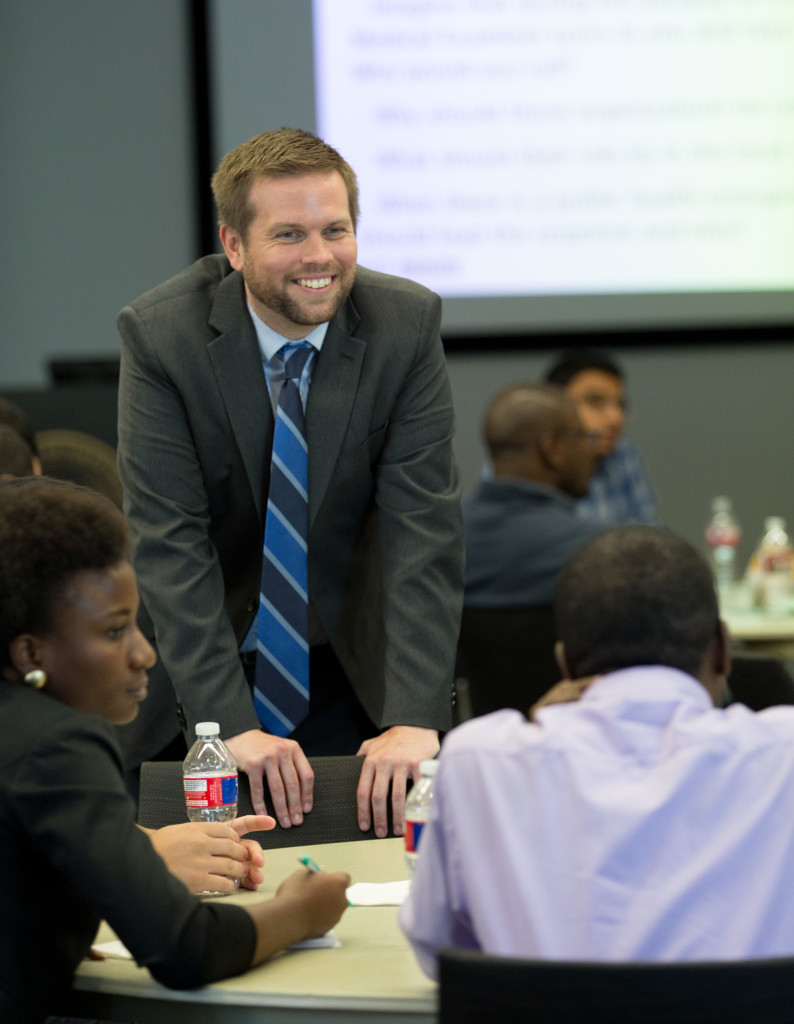Preparing for outbreak
October 15, 2014 • Uncategorized
 As the world anxiously follows news from first responders, health care workers and the CDC in the wake of the Ebola outbreak in Dallas, students at UNT Health Science Center are learning valuable lessons to help prepare for their own future service in the field.
As the world anxiously follows news from first responders, health care workers and the CDC in the wake of the Ebola outbreak in Dallas, students at UNT Health Science Center are learning valuable lessons to help prepare for their own future service in the field.
During a recent disaster preparedness tabletop drill, students from the UNTHSC School of Public Health (SPH) studied the film Contagion and worked in teams with North Texas agencies to explore issues and recommend solutions to save their community from the mock disaster.
The drill was part of an interprofessional education (IPE) effort to instill values based on teamwork, ethics, respect for all professions, collaboration and effective communication, adapted from a University of Texas School of Nursing exercise by Brad Cannell, PhD, MPH, SPH Assistant Professor, Biostatistics and Epidemiology, and the SPH IPE Committee.
Representatives from Tarrant County Public Health, the City of Fort Worth, MedStar emergency service, local hospitals and other agencies worked with students to share their knowledge and personal experiences.
The day’s discussions focused on how disasters can be both immediate and far-reaching, and that disaster situations can involve important economic, cultural, social, religious and cost factors.
“Overall, it was a big win for our students and helped build stronger collaboration between UNTHSC and the community,” said Dennis Thombs, PhD, Chair of the Department of Behavioral and Community Health for the School of Public Health, and one of the event leaders.
“It was interesting to see how students worked through the scenarios and how they gained new perspectives from the community participants,” he said.
In one case, Dr. Thombs noted for example, students were asked who would need vaccinations first in a disease outbreak, and they recommended shots for the elderly and children – while in fact, as Fort Worth’s city emergency manager explained, the groups that would actually need these precautions first are the emergency responders like police, firefighters, health care workers and those whose jobs involve taking care of others.
“The mock drill was an excellent learning experience for our students, and so necessary, because they will be the ones taking on important public and community health roles in the future,” he said.

Social media